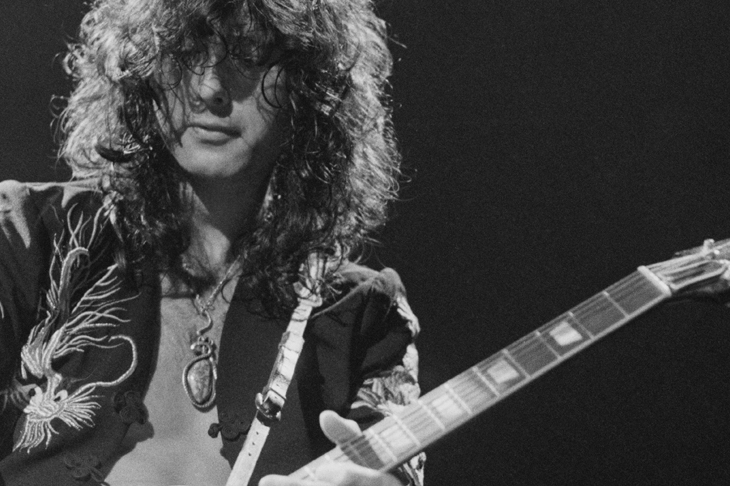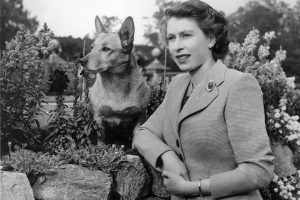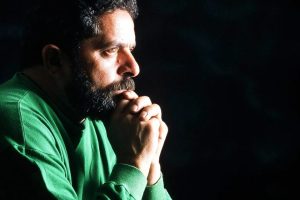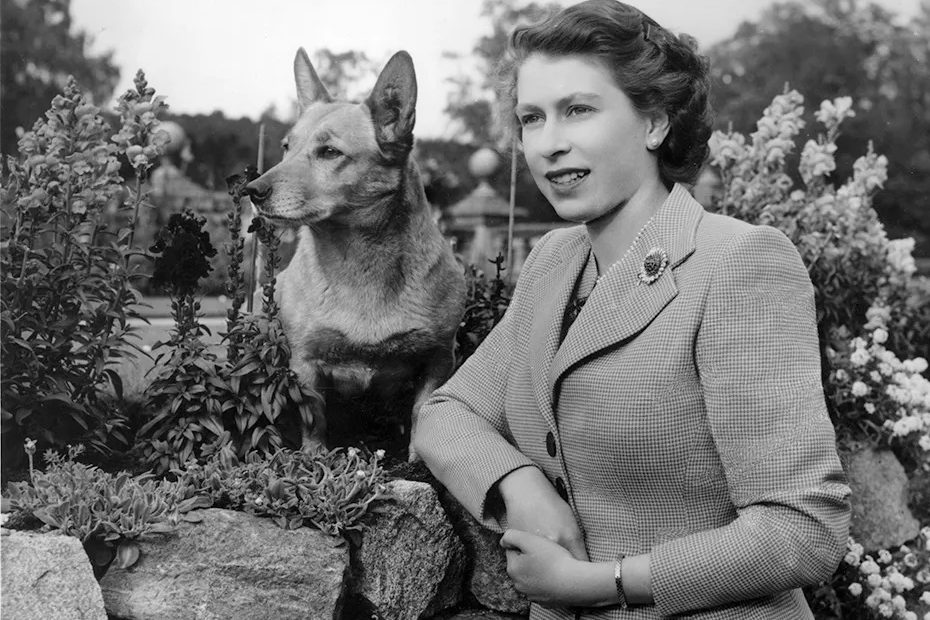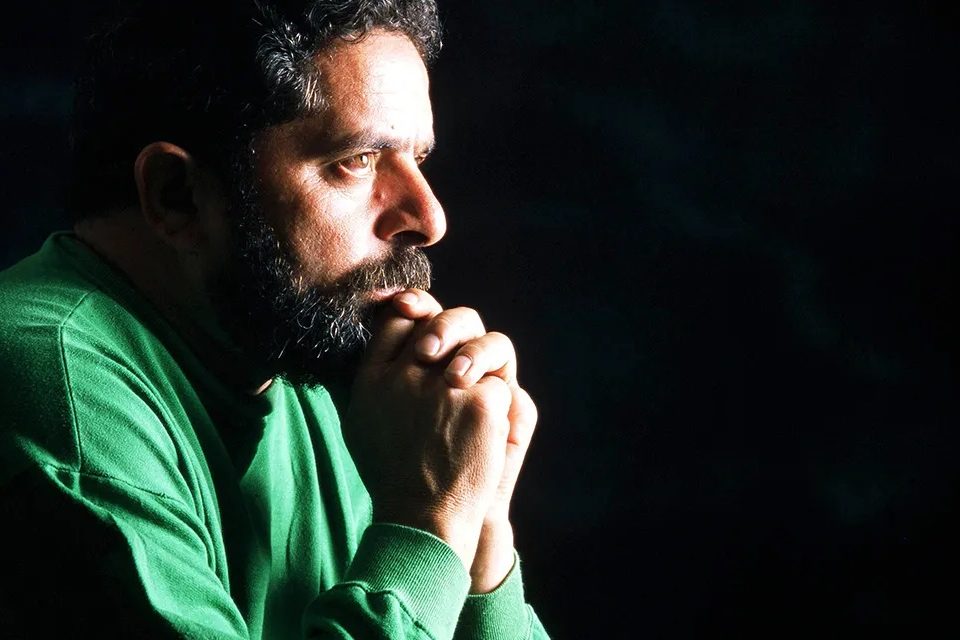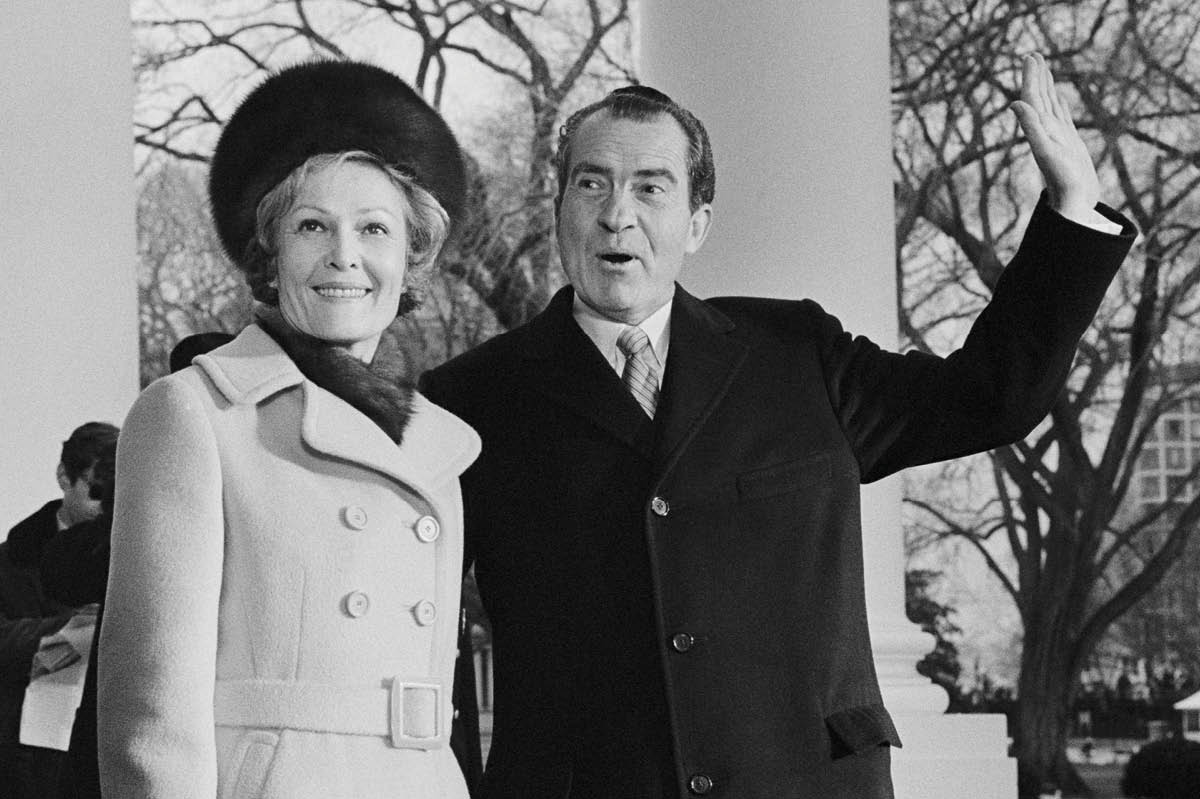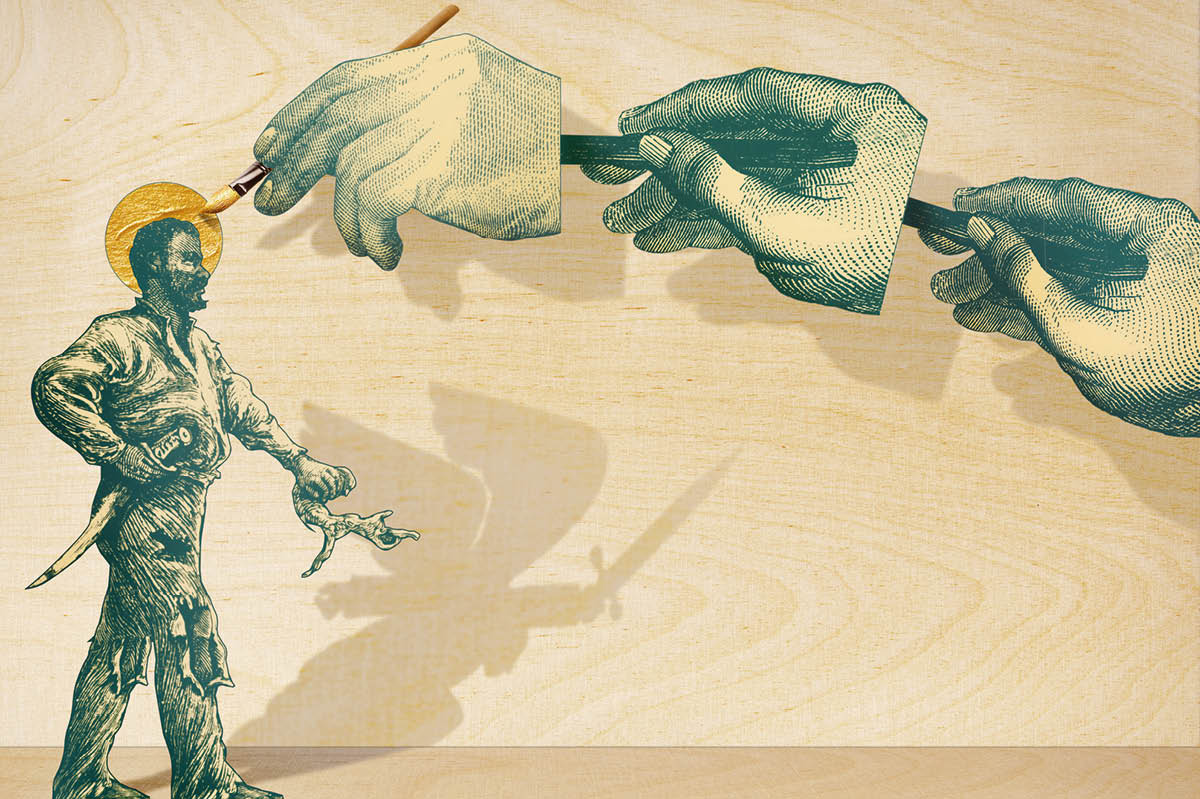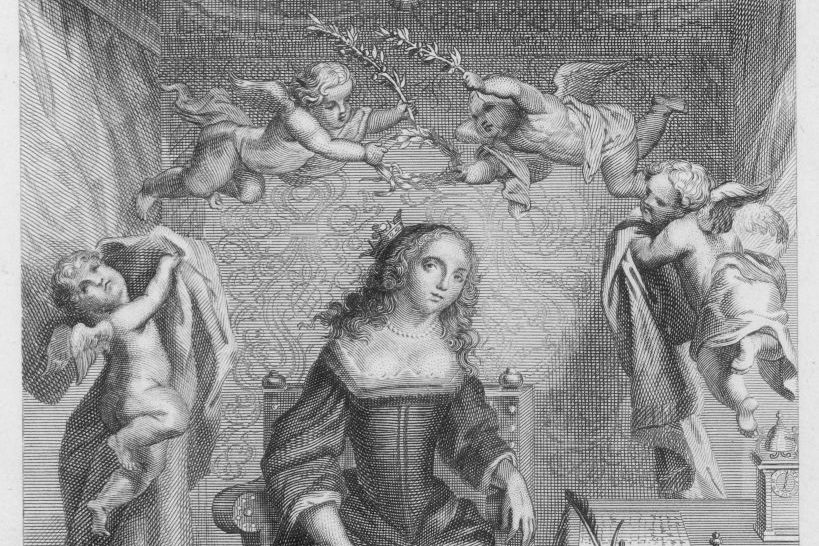In 1957, aged 13, Jimmy Page appeared with his skiffle group on a children’s TV programme dedicated to ‘unusual hobbies’ — skiffle apparently qualifying as one. During the show, he was interviewed by Huw Wheldon who, following an old-fashioned BBC lunch, arrived in the studio with a hearty cry of ‘Where are these fucking kids then?’ Asked what he planned to do when he grew up, Page gave a perhaps unexpected reply: find a cure for cancer.
As we now know, this plan failed — but already, it seems, the young Jimmy wasn’t lacking in the swaggering self-confidence that true rock stars are required to possess (or at least to fake convincingly). Meeting Page during his 1970s peak, David Bowie’s manager noted with some alarm that he ‘did believe he had the power to control the universe’.
So where on earth did that level of ego come from? Well, one obvious reason is that Page was always an extraordinary musician. When he was eight, his family moved from Middlesex to a house in Epsom, where the previous owners had left a Spanish guitar behind. Page was soon practising up to seven hours a day and, while still a teenager, had already established himself as one of London’s leading session musicians. Later in the 1960s, he played on — among other hits — Lulu’s ‘Shout’, Tom Jones’s ‘It’s Not Unusual’ and Petula Clark’s ‘Downtown’. Eventually, he became lead guitarist for the Yardbirds — following Eric Clapton and Jeff Beck — before founding, and then conquering the world with, Led Zeppelin.
But, according to Chris Salewicz, a classic rock journalist of the old school, other forces were at work beyond simply musical talent. There was, for a start, the occult — which Page famously absorbed from the works of Aleister Crowley and which, says Salewicz, is ‘after all concerned with plumbing ones own mystic depths for certain truths that are beneficial to the whole of humanity’.
And then there’s the fact that Page is a Capricorn — because, the way Salewicz tells it, Page’s star sign explains more or less everything about him: from his ‘Capricorn earthiness’ to his ‘Capricorn love of control’. It’s also why he voted Conservative (‘He has much of the love of tradition associated with that sign’) and, less controversially for a rock star, became a junkie (‘Capricorn is an astrological sign rather partial to hard drink and drugs’).
In other words, this is a distinctly odd book. Salewicz does a fine and often exhilarating job of laying out the facts of Page’s life. Yet, his comments on them largely confirm the theory that there’s not a great deal of difference between a classic rock journalist and an old hippie. Led Zeppelin’s first concert, he tells us matter-of-factly, ‘punched their audience in their third eye’ — while, ‘as a Scorpio’, one 14-year-old groupie ‘would have made a strong connection with Jimmy’s Scorpio rising’. (No double entendre intended, I fear.)
Even more striking is the degree of special pleading. Salewicz’s narrative spares us none of Page’s faults: his arrogance, vanity and legendary meanness. (After Led Zeppelins’s first rehearsal he charged the band for the beans on toast he provided — although, to be fair, at cost price.) There’s also plenty about Page’s now somewhat unfashionable sexual attitudes, including that well-documented fondness for underage girls and his habit of showing photographs of their vaginas to the rest of the band. ‘Girls come around and pose like starlets,’ he once told Life magazine. ‘If you humiliate them a bit, they tend to come on all right after that.’
When he turns to editorialising, though, Salewicz’s punches could scarcely be more pulled. ‘Some of Jimmy’s more unfortunate character aspects,’ he writes at one typical point, ‘disguised the fact that he was really an extremely evolved human being, and also essentially a nice bloke.’
Far more sure-footed is Salewicz’s affectionate but shrewd analysis of the music — which was clearly Page’s biggest love anyway. Like Keith Richards in his autobiography, he seems to have found no drug or chick quite as exciting as the discovery of a new tuning for his guitar. Once Led Zeppelin split in 1980, Page became a depressive recluse for several years, emerging only to try and recreate the glory days as best he could, or to curate yet another collection of their work.
Meanwhile, for all its flaws, Salewicz’s biography does provide one other extremely useful service. Last year, in Uncommon People, David Hepworth made a strong case that: ‘The age of the rock star, like the age of the cowboy, has passed.’ Here, we get a particularly vivid reminder, by turns thrilling and uncomfortable, of that age in its pomp. For older readers, the result may well prove embarrassingly irresistible. Younger ones, I suspect, might be left wondering just how these people got away with it for so long.



